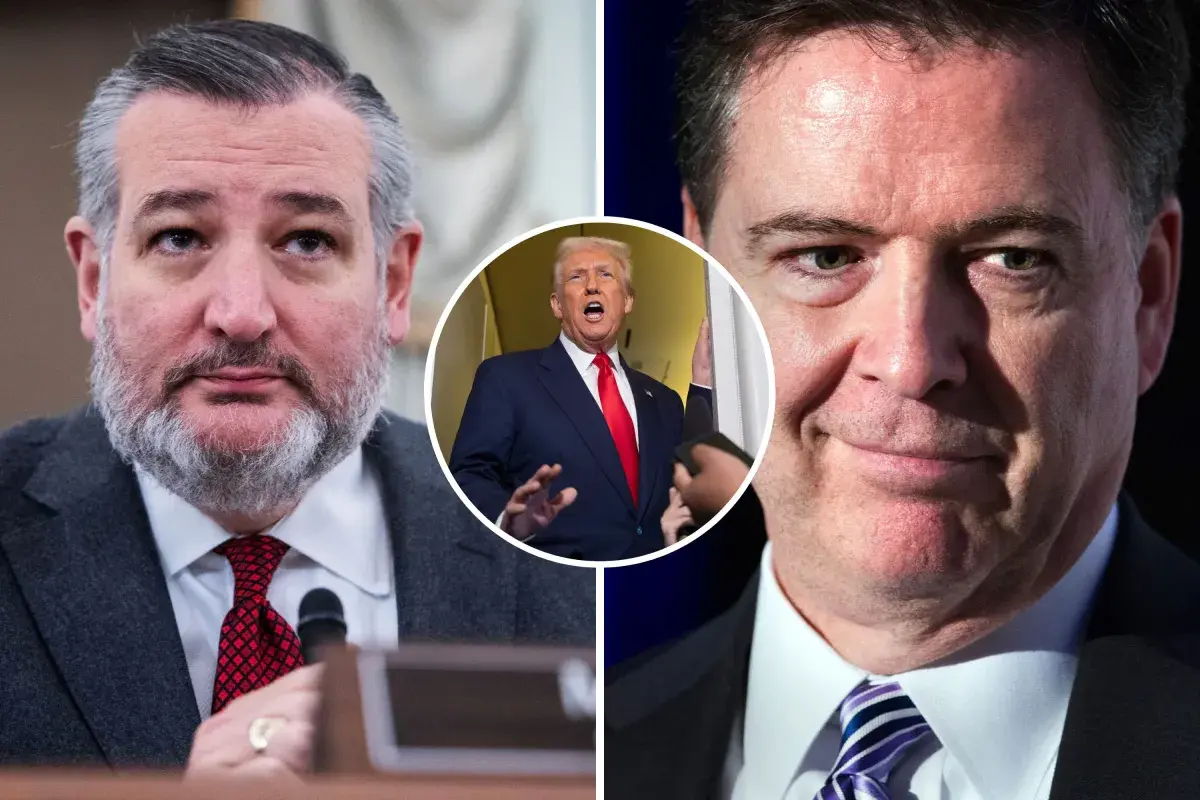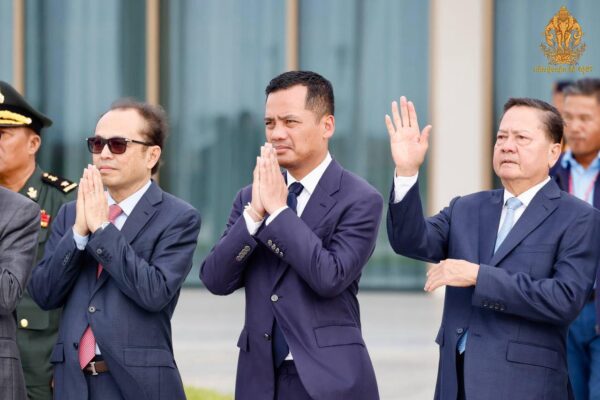Copyright Newsweek

Lawyers for former FBI Director James B. Comey filed new motions in federal court this week seeking dismissal of the criminal charges against him, arguing that the indictment rests on ambiguous congressional testimony and a flawed prosecutorial process. Comey’s defense argues that his 2020 exchange with Senator Ted Cruz, a Texas Republican, cannot legally constitute perjury, while critics say the case exemplifies the erosion of prosecutorial independence. Newsweek contacted attorneys for Comey and Cruz for comment via email outside normal office hours on Friday. Why It Matters Comey's prosecution has become a test case for the boundaries between law and politics in Washington. At issue is whether ambiguous congressional testimony can be criminally prosecuted—and, more broadly, whether the Justice Department under President Donald Trump has crossed a constitutional line by pursuing political adversaries. The outcome will determine not only Comey’s fate but also how far a president can go in directing the machinery of justice against perceived enemies. What To Know Charges Tied To 2020 Senate Testimony The filings, submitted in the U.S. District Court for the Eastern District of Virginia, center on an exchange between Comey and Cruz during a 2020 Senate Judiciary Committee hearing and raise questions about the Justice Department’s independence under Trump. Comey, who served as FBI director from 2013 until his dismissal by Trump in 2017, faces two counts: making false statements to Congress and obstructing a congressional proceeding. Both stem from his September 30, 2020, testimony before the Senate Judiciary Committee regarding the “Crossfire Hurricane” investigation into potential ties between the 2016 Trump campaign and Russia. During that hearing, Cruz asked Comey whether he had ever “authorized someone else at the FBI to be an anonymous source in news reports” related to the Hillary Clinton or Trump investigations. Comey responded, “I can only speak to my testimony. I stand by what... I gave in May of 2017.” Prosecutors allege that Comey’s denial was false because he had previously authorized a former FBI employee, Daniel C. Richman, to communicate anonymously with the press about an FBI matter involving Clinton. Defense Moves To Dismiss Indictment In a 27-page motion filed October 30, Comey’s defense team argued that Cruz’s questions were “fundamentally ambiguous” and that Comey’s response was “literally true.” The filing states that the senator’s questioning “focused exclusively on an asserted contradiction between Mr. Comey and former Deputy Director Andrew McCabe” and that Cruz “never indicated that he wanted Mr. Comey to address the statements or activities of any person except for Mr. McCabe.” Therefore, the defense contends, “as a matter of law, neither those questions nor those answers can serve as the basis for a violation of 18 U.S.C. § 1001(a)(2).” Comey’s counsel—led by Jessica Carmichael, Patrick Fitzgerald and Michael Dreeben—also moved to dismiss a second count under 18 U.S.C. § 1505 that accuses him of obstructing a Senate investigation by giving “false and misleading statements.” The motion asserts that the obstruction charge “fails to give Mr. Comey adequate notice of the charges against him,” because it does not specify which statements were false or how they impeded Congress. A separate filing sought permission to submit video footage of the Cruz-Comey exchange as an exhibit, arguing that the recording would provide “the most accurate understanding of the exchange” on which the government’s case relies. Questions Over Prosecutor’s Appointment And Justice Department Independence The motions expand on earlier arguments by Comey’s team that the prosecution is politically motivated. According to court filings and reporting by The New York Times, Comey’s lawyers have claimed that Trump ordered Attorney General Pam Bondi to “prosecute him now,” shortly after replacing U.S. Attorney Erik Siebert, who had refused to indict Comey. Trump then installed Lindsey Halligan, a former personal attorney with no prior prosecutorial experience, to lead the Eastern District of Virginia. Within days of her appointment, Halligan obtained a two-count indictment against Comey. Defense filings describe Halligan’s grand jury presentation as “rife with irregularities,” alleging that she kept jurors “well past normal business hours” and signed “two different versions of the indictment.” They argue that these procedural flaws, combined with Halligan’s lack of prosecutorial background, rendered the process “prejudicial” to the grand jury’s deliberations. Prosecutors have not responded to those allegations but are expected to file briefs within two weeks, according to court scheduling orders. The case has also raised broader questions about the Justice Department’s autonomy. Legal observers have noted that Halligan’s appointment bypassed the usual Senate confirmation process. Comey’s attorneys assert that the move violated statutory limits on consecutive interim appointments of U.S. attorneys. “If the attorney general could make back-to-back sequential appointments of interim U.S. attorneys,” the defense wrote, “the 120-day period would be rendered meaningless, and the attorney general could indefinitely evade the alternate procedures that Congress mandated.” Judge Michael S. Nachmanoff, who is presiding over the case, has scheduled a hearing for November 13 to consider the challenge to Halligan’s appointment. A visiting judge, Cameron McGowan Currie of South Carolina, is expected to oversee that session because the issue overlaps with a related case involving another Trump critic, New York Attorney General Letitia James, who was also indicted by Halligan this month. Comey has pleaded not guilty to all charges and maintains that his testimony was truthful. A ruling on the motions to dismiss is expected before the end of the year. What People Are Saying Former FBI Director James Comey, after his indictment: “My family and I have known for years that there are costs to standing up to Donald Trump…We will not live on our knees, and you shouldn’t either.” Comey, in a legal filing seeking dismissal of the charges: “Fundamental to any false-statement charge are both clear questions and false answers. Neither exists here.” Senator Ted Cruz, during the 2020 Senate hearing with Comey: “This investigation of the president was corrupt. The FBI and the Department of Justice were politicized and weaponized. And, in my opinion, there are only two possibilities: that you were deliberately corrupt or woefully incompetent.” What Happens Next In the coming weeks, the Justice Department must respond to Comey’s motions to dismiss his indictment. A hearing set for November 13 will address Halligan’s appointment and could determine whether the case proceeds or is thrown out entirely. If the court rules that the indictment or appointment is invalid, prosecutors may be barred from refiling because the statute of limitations has expired.



